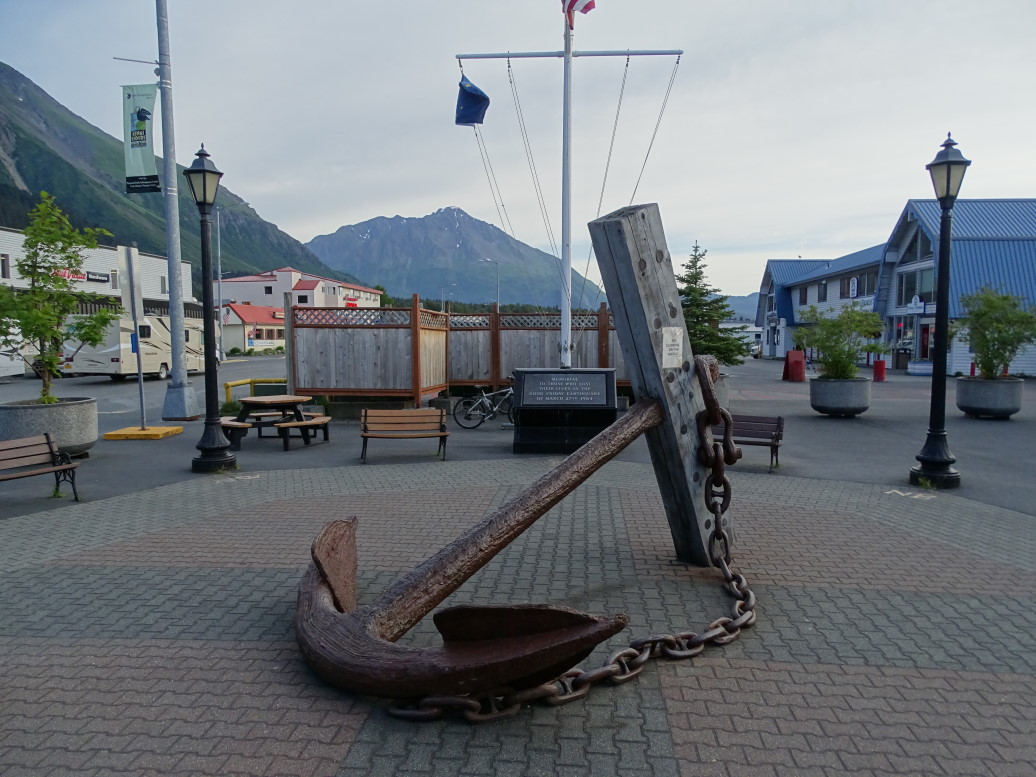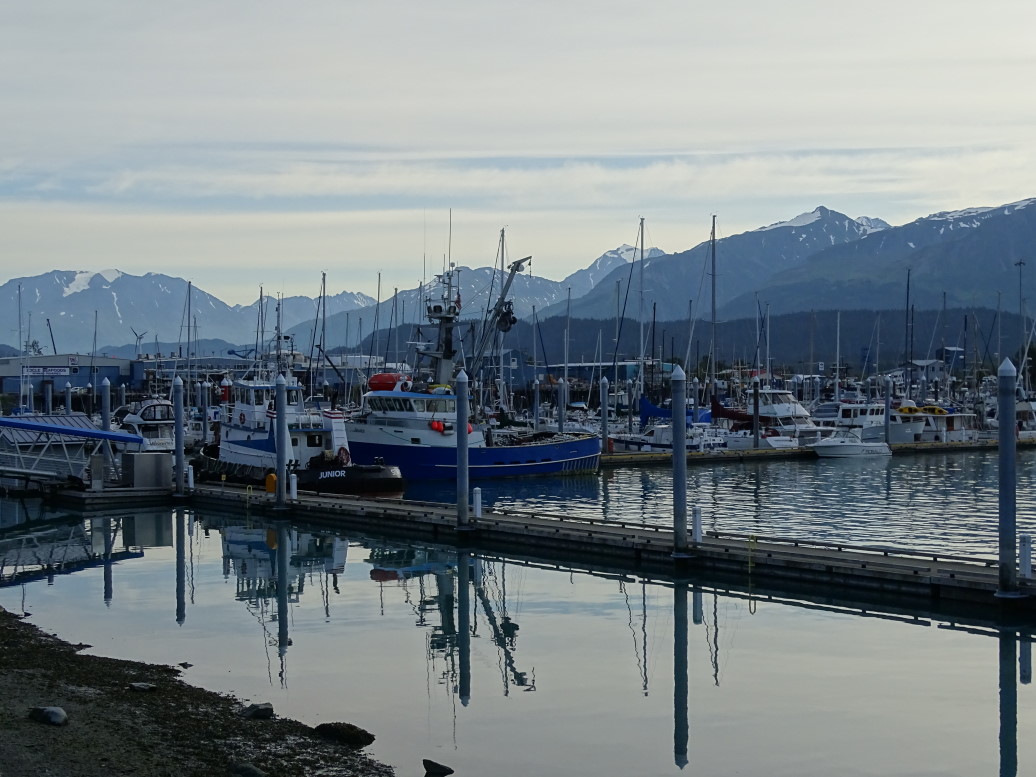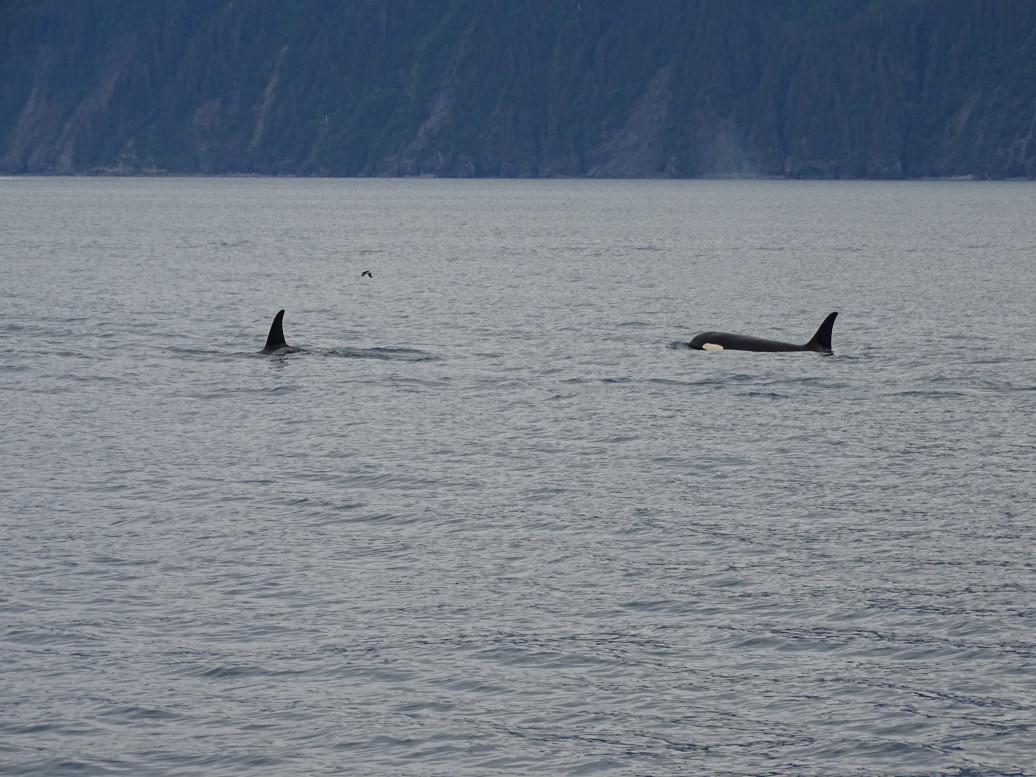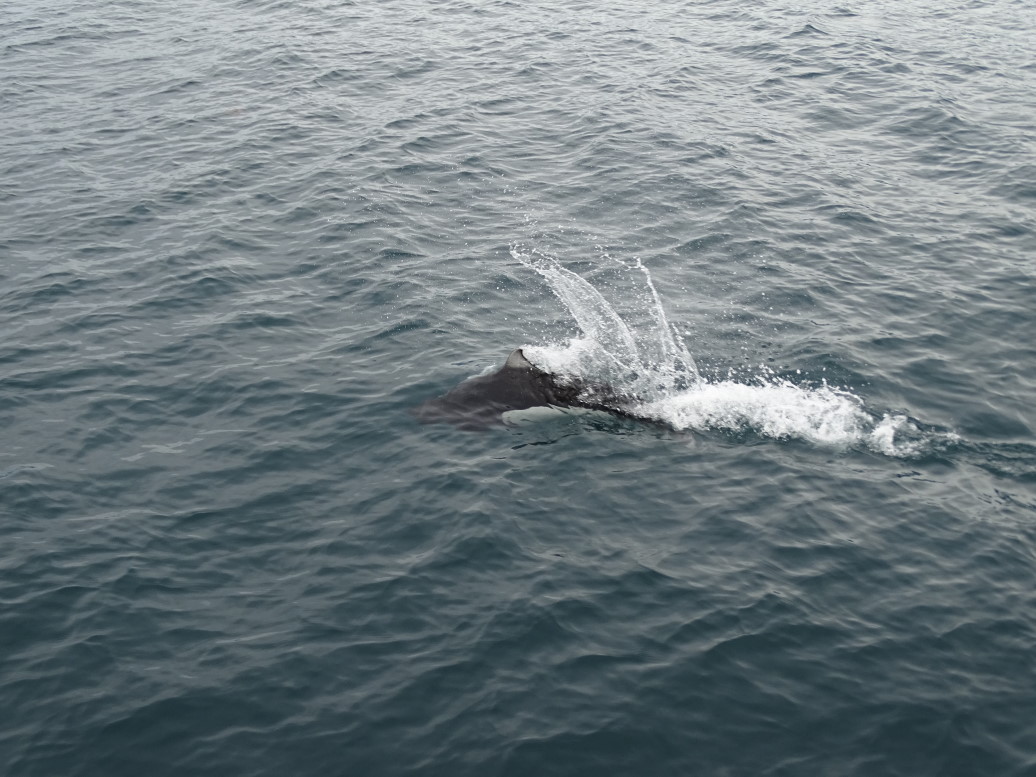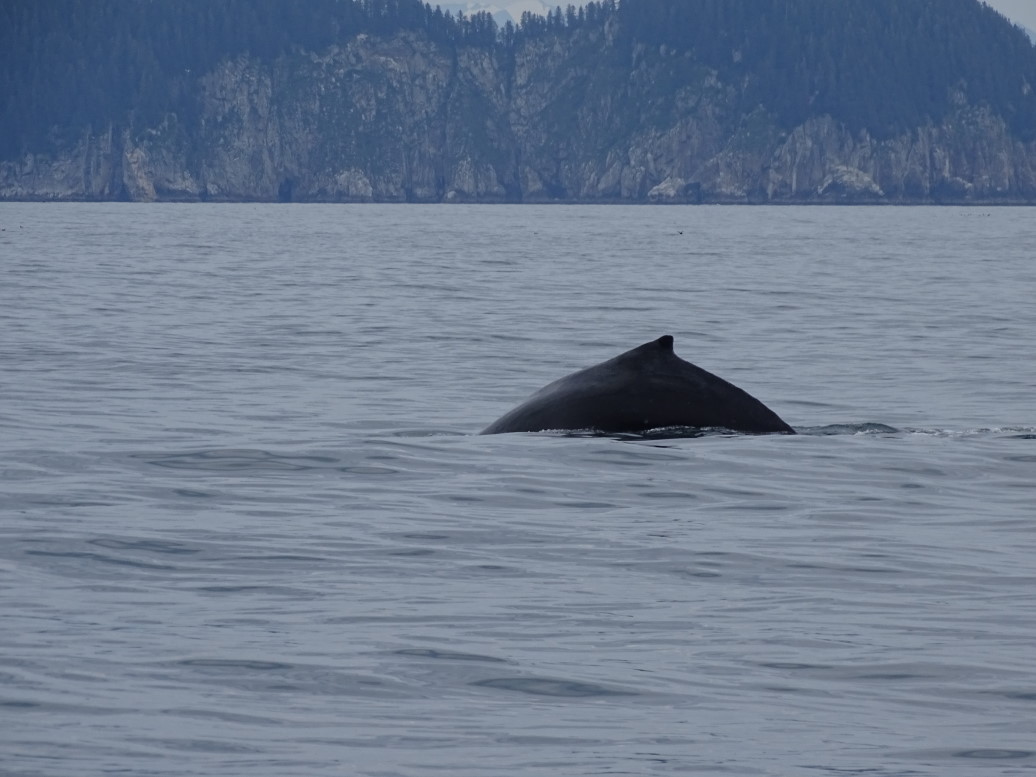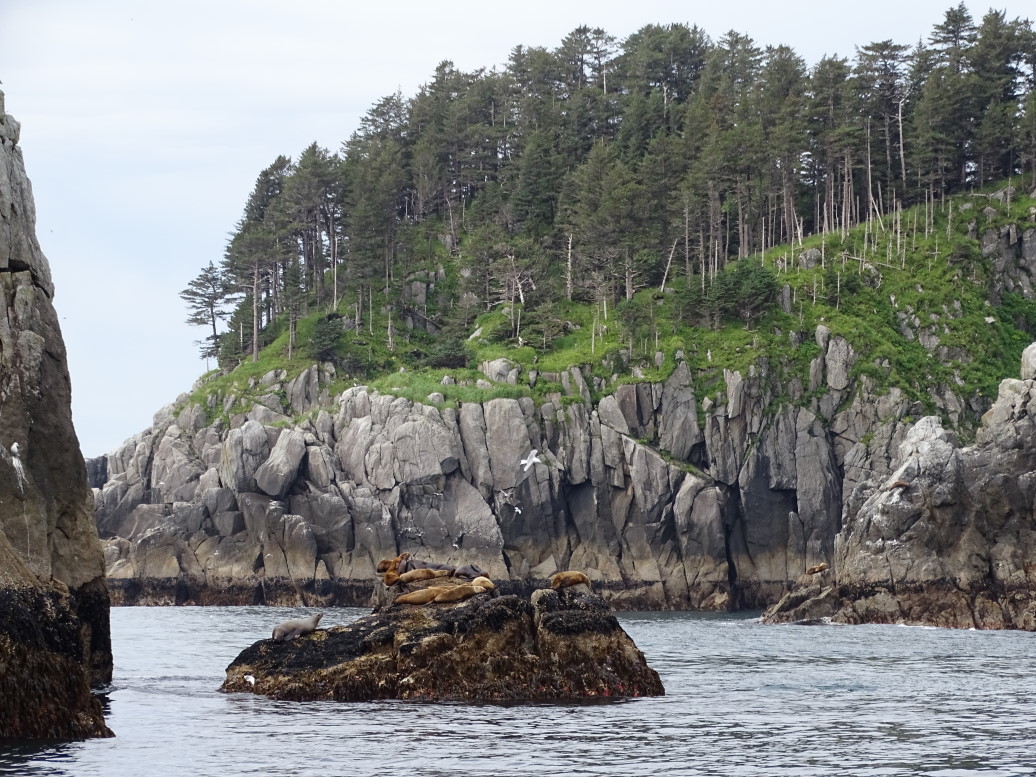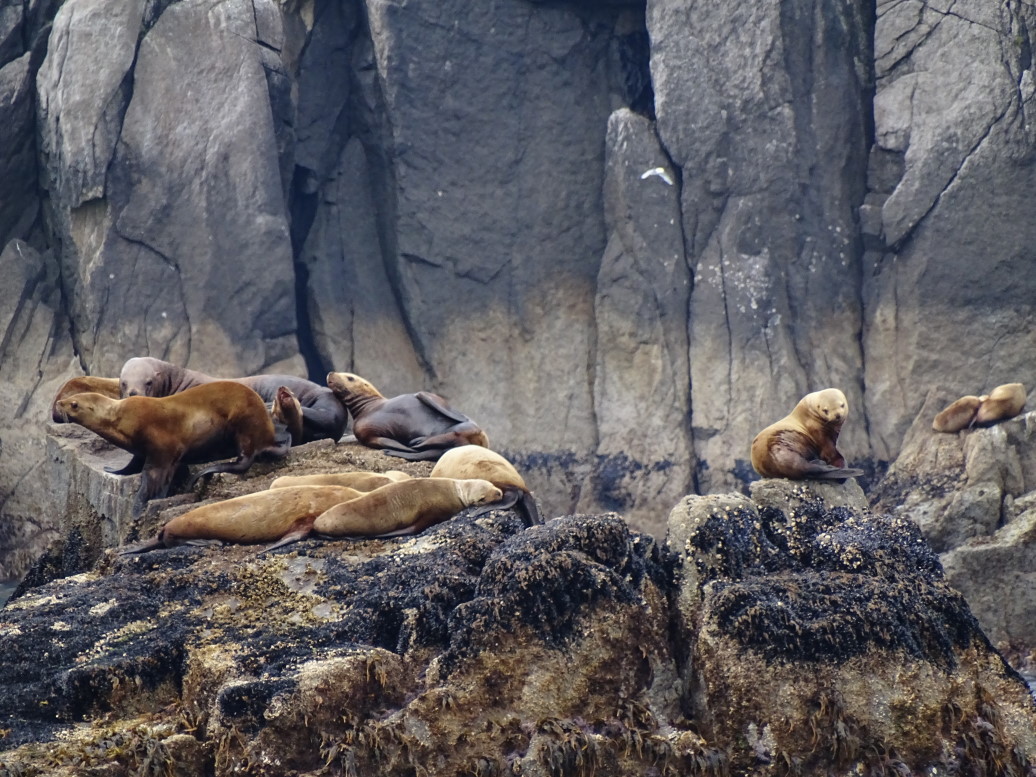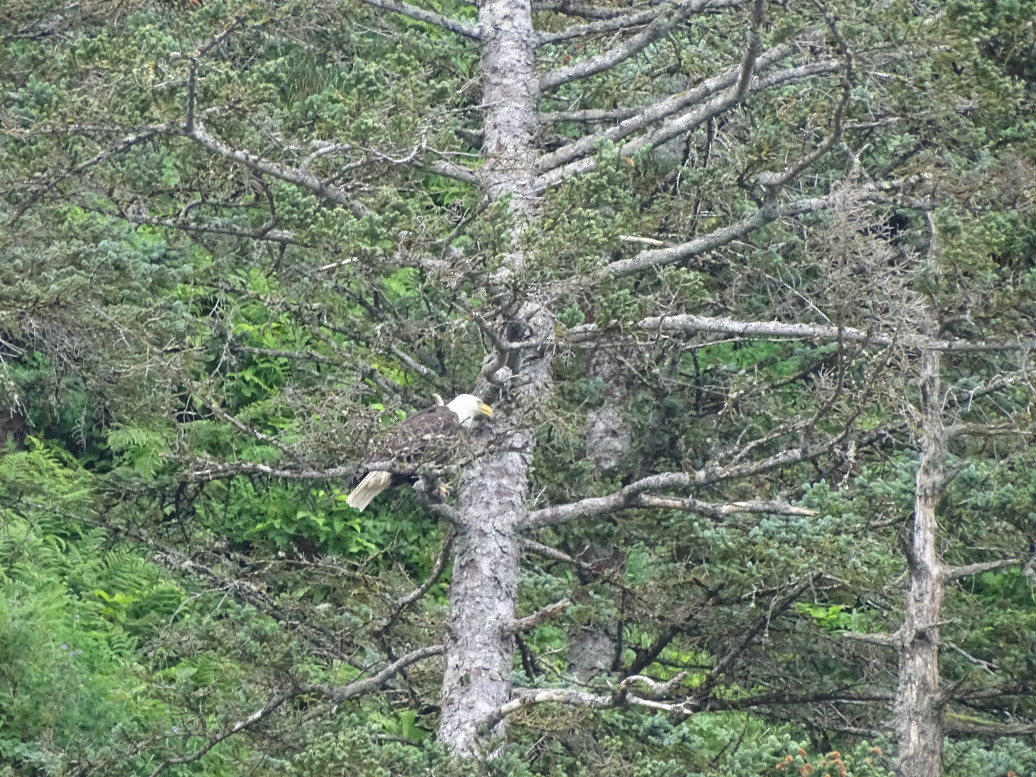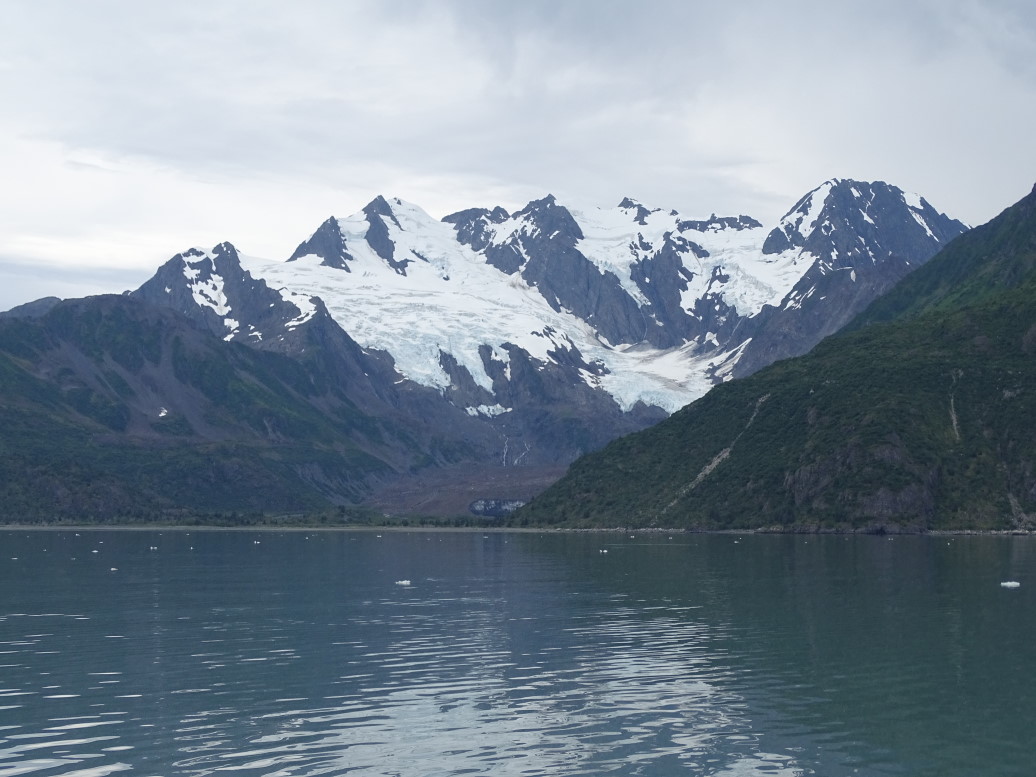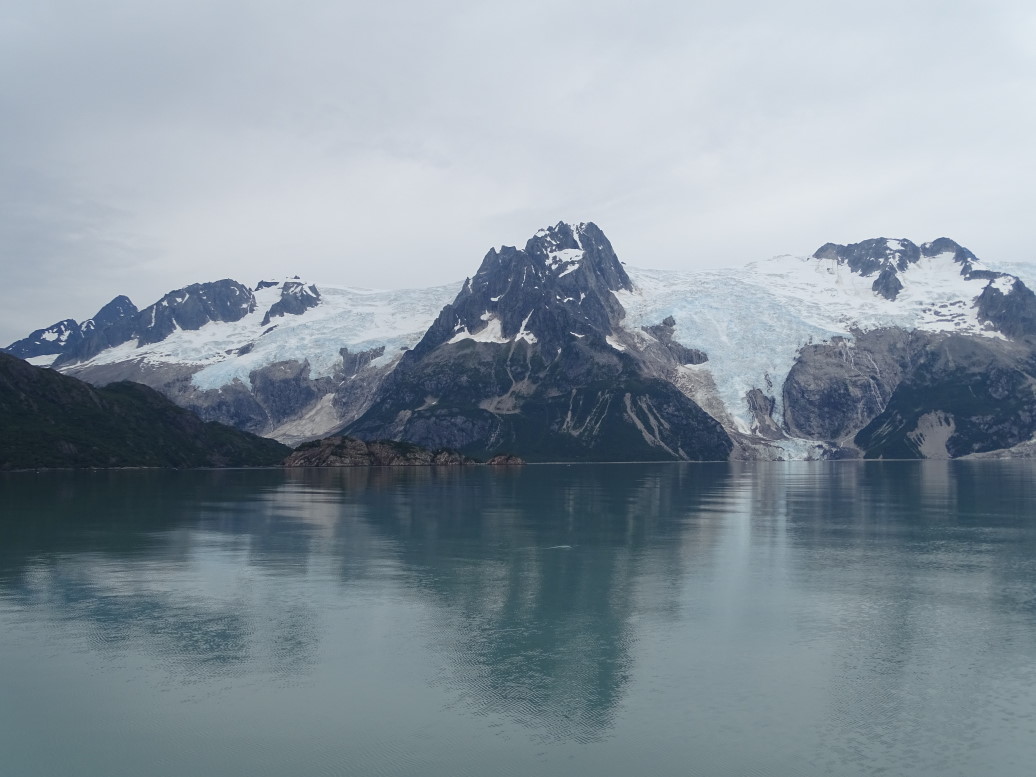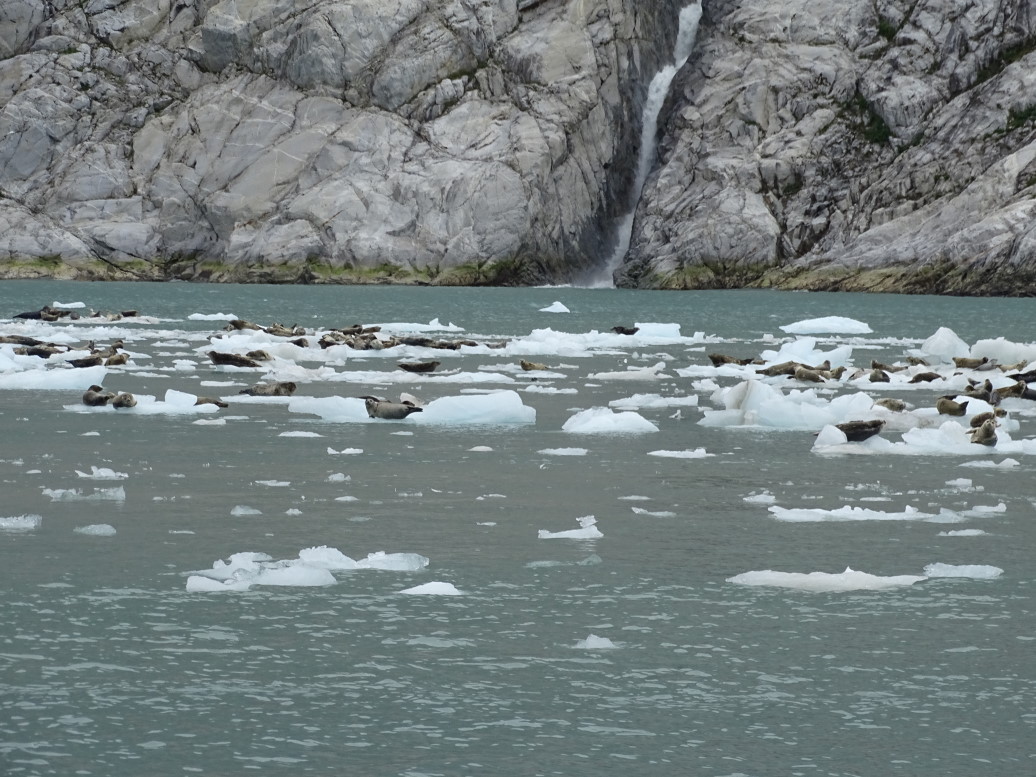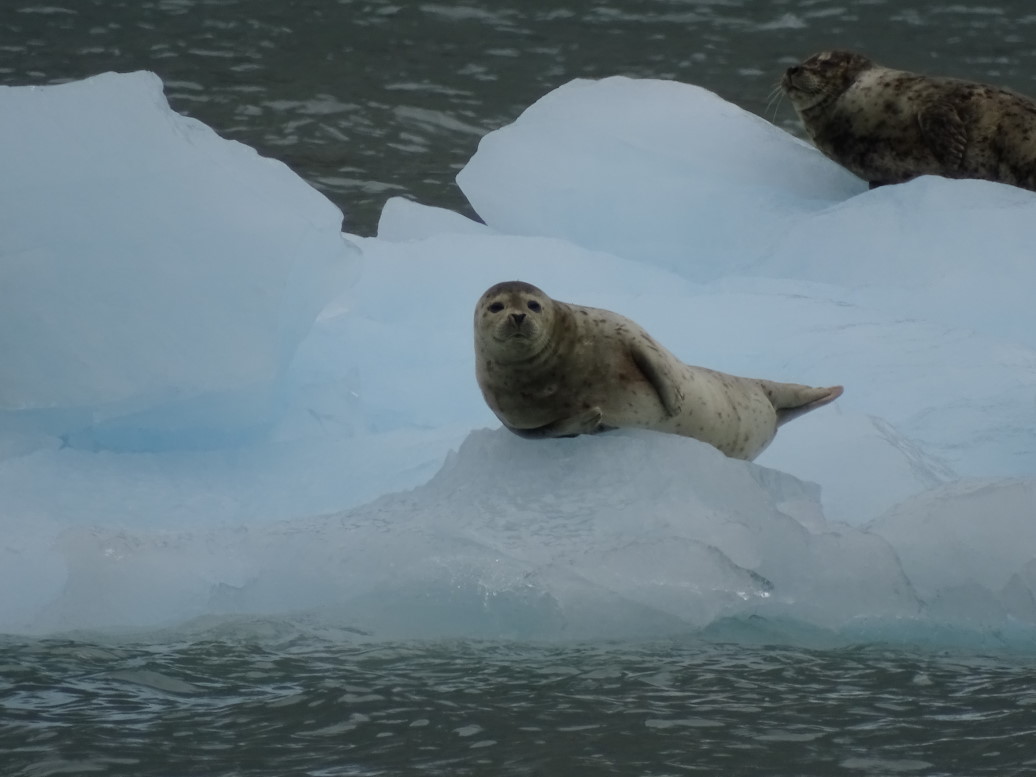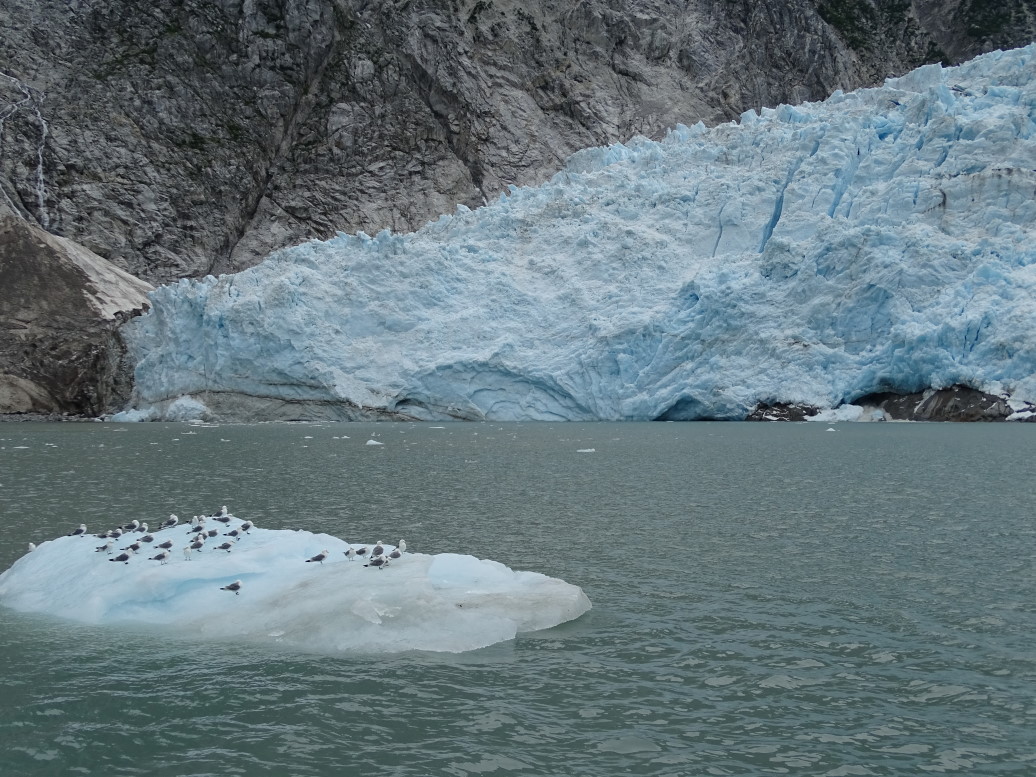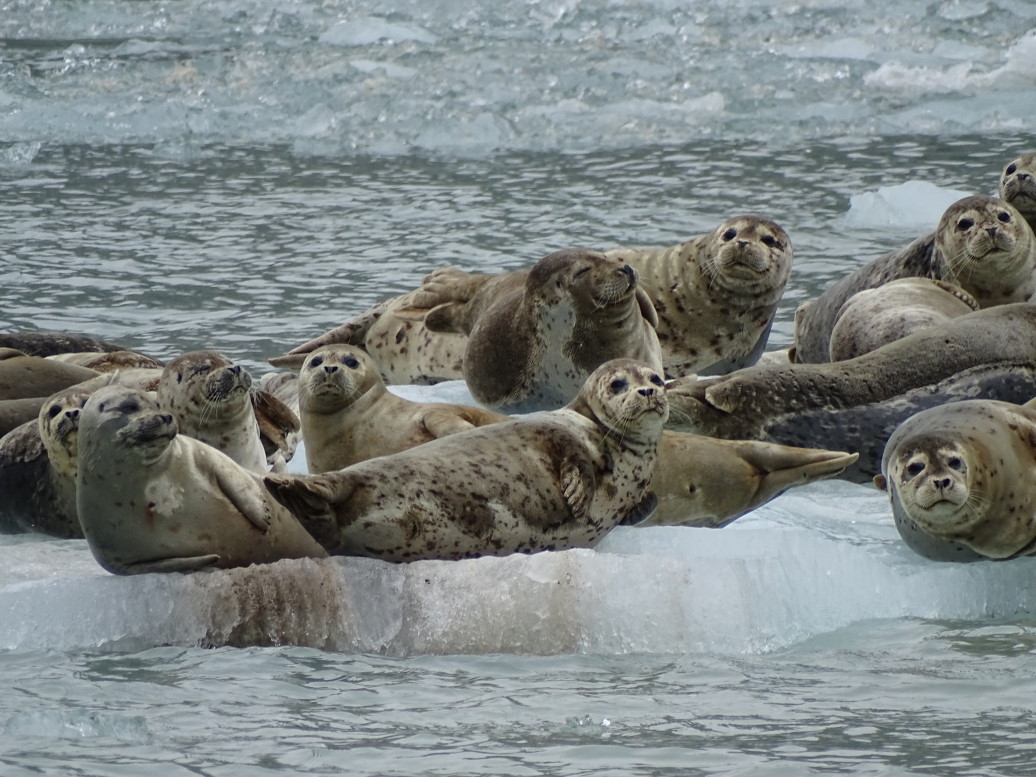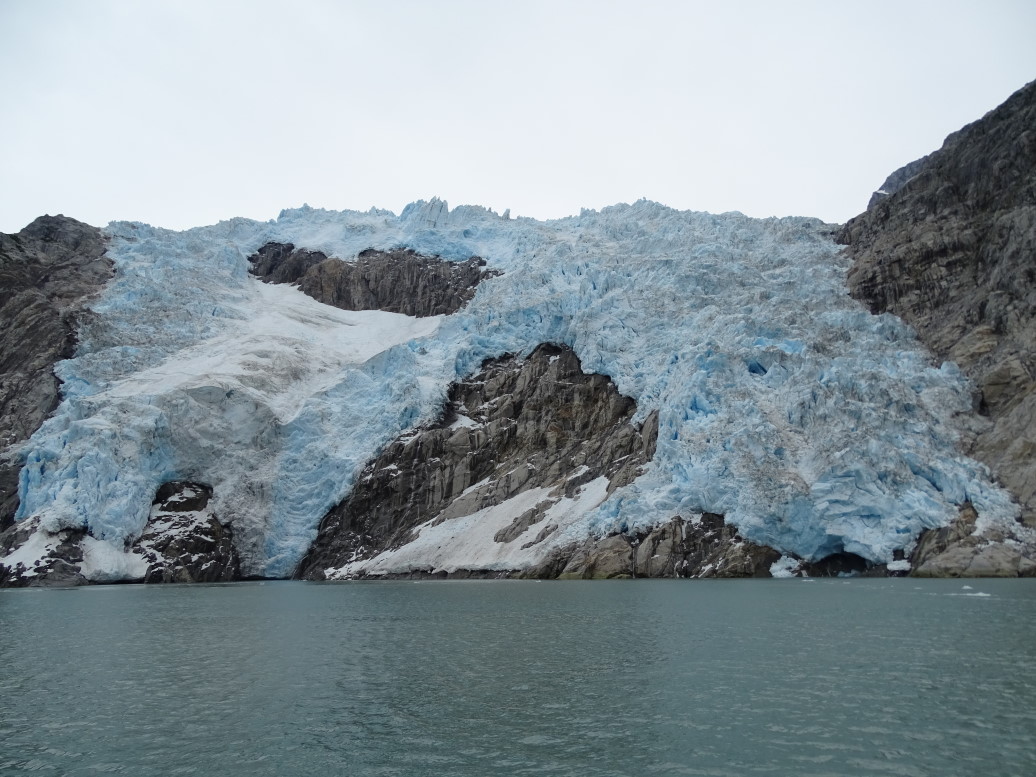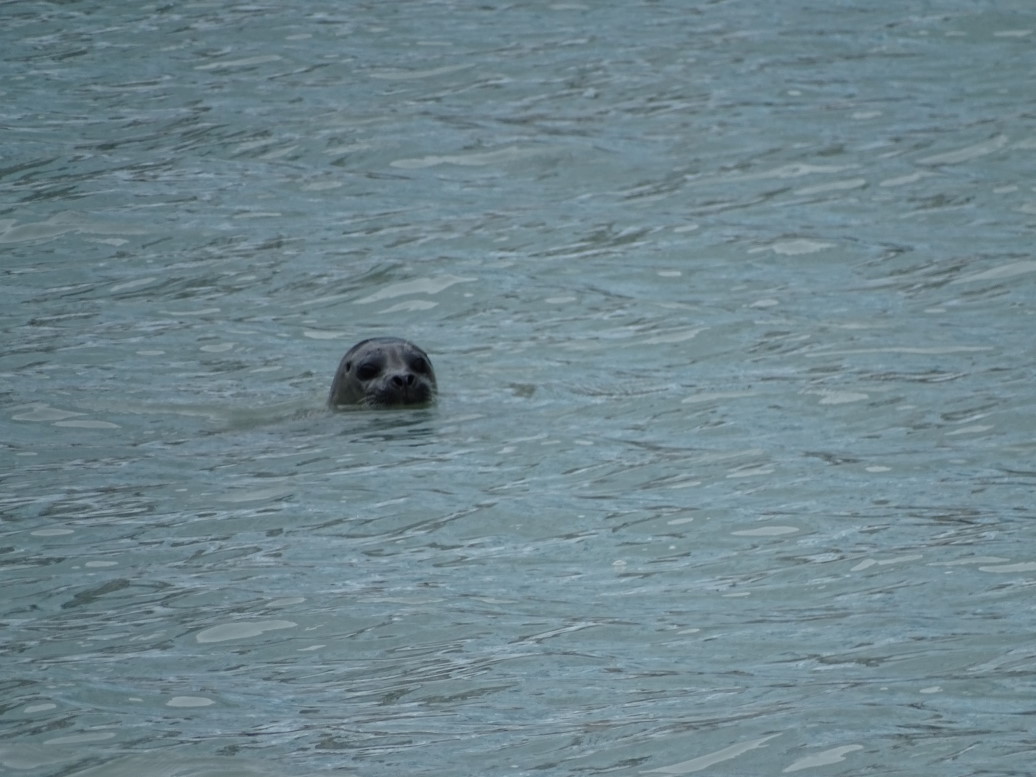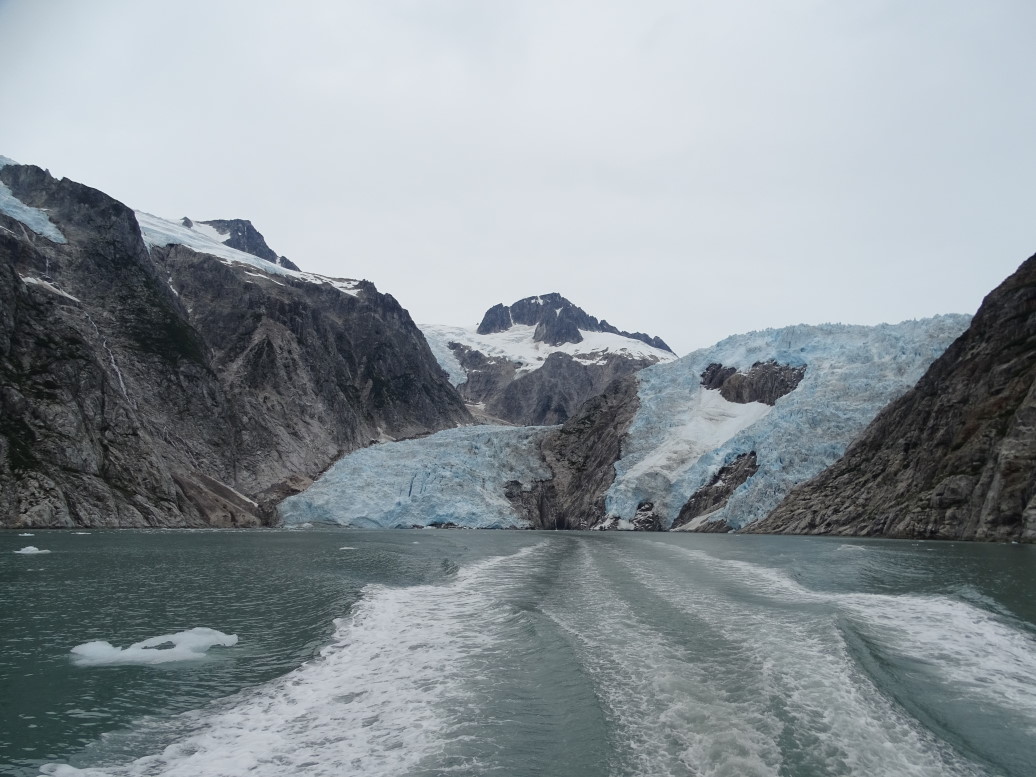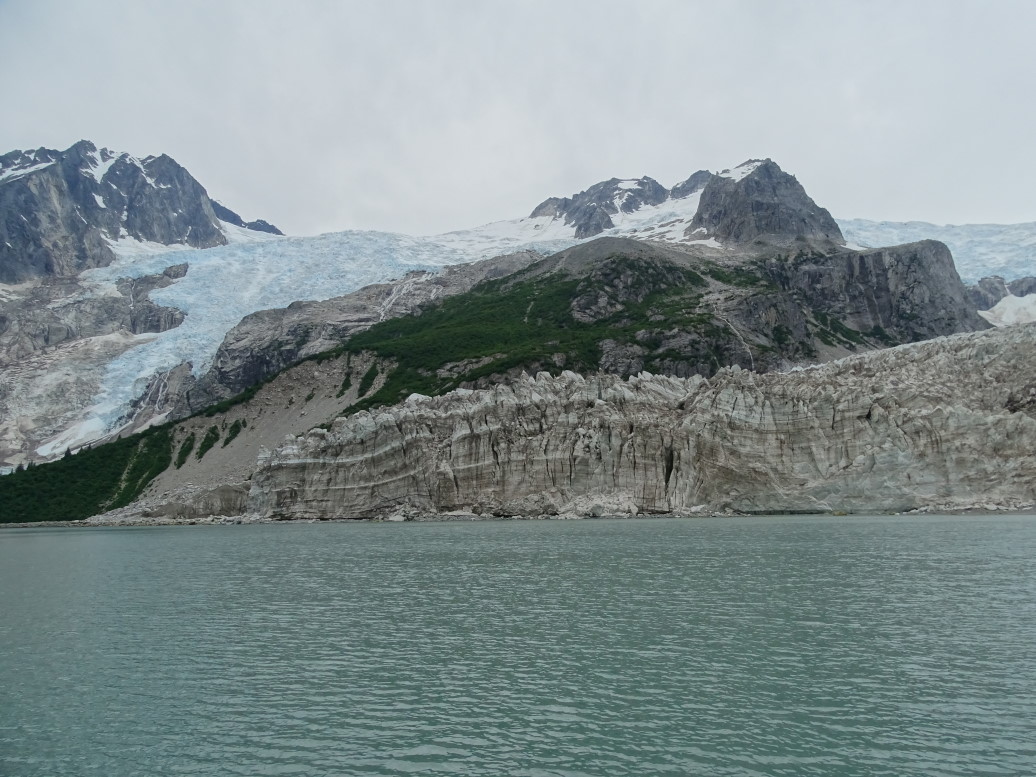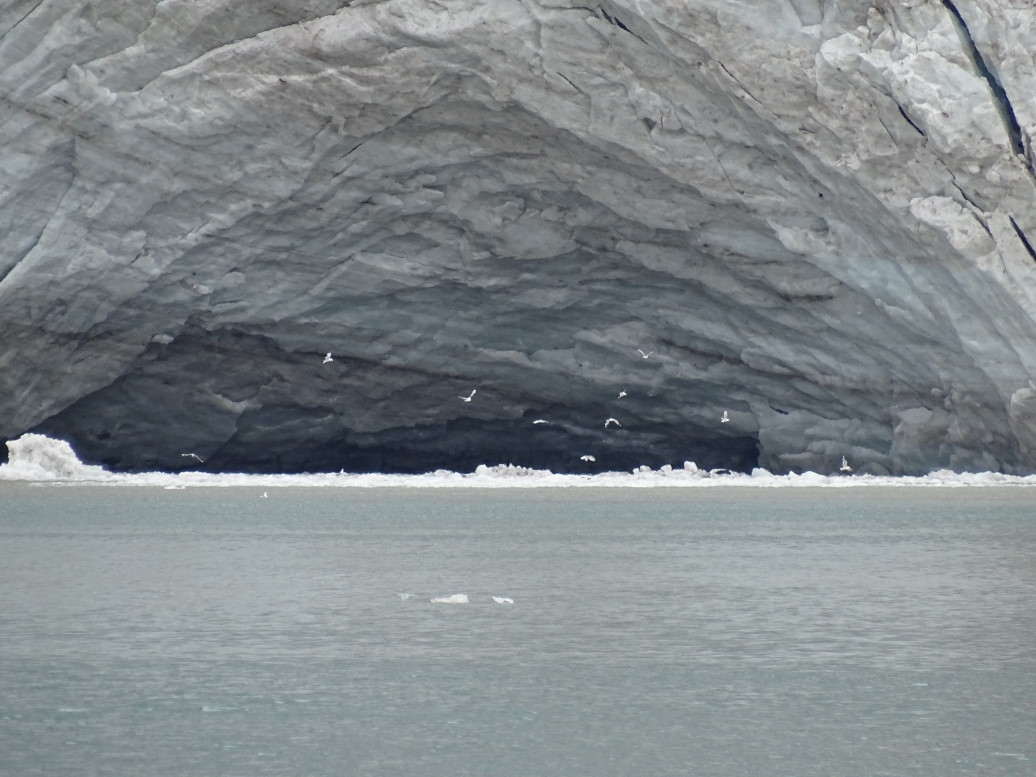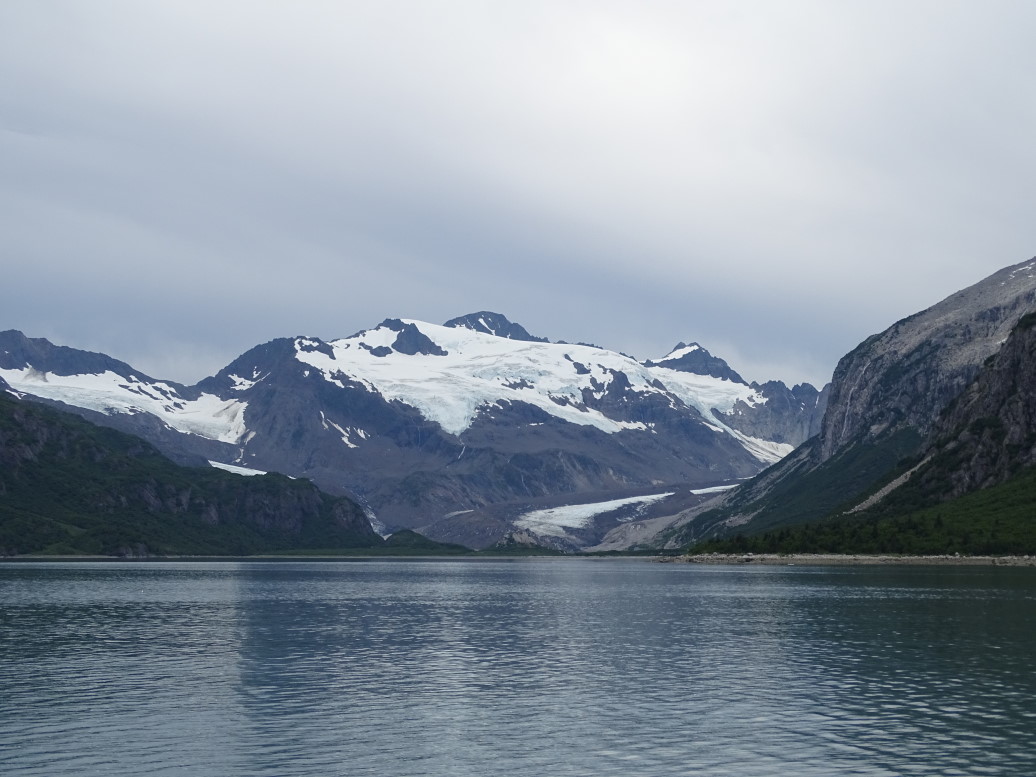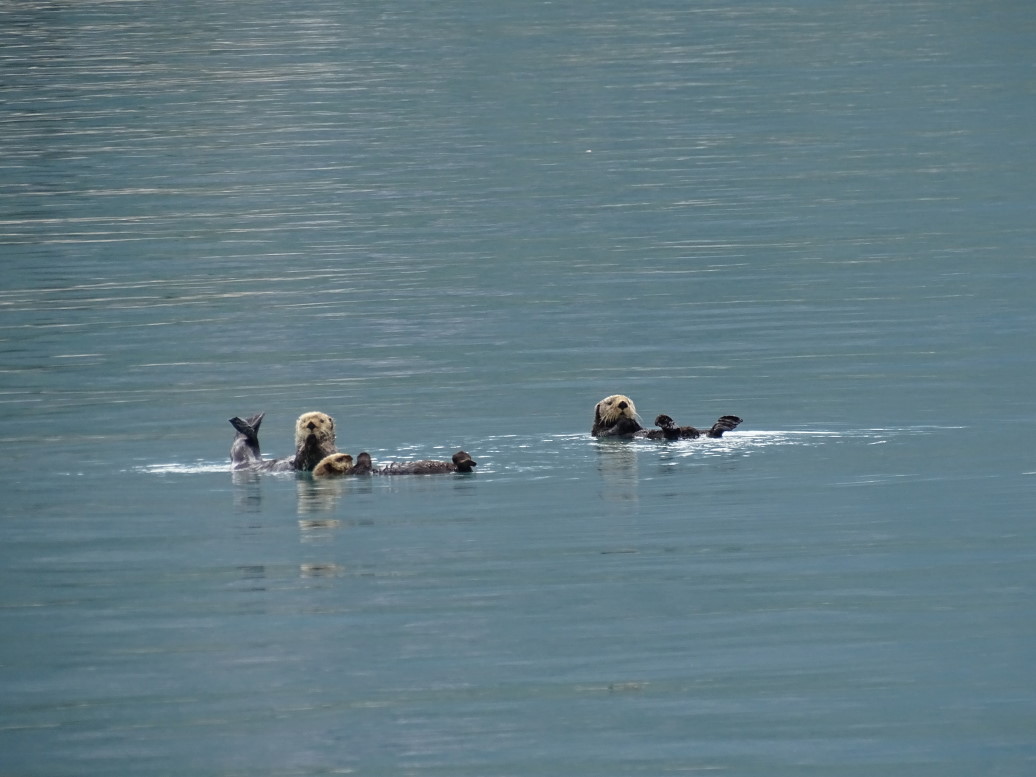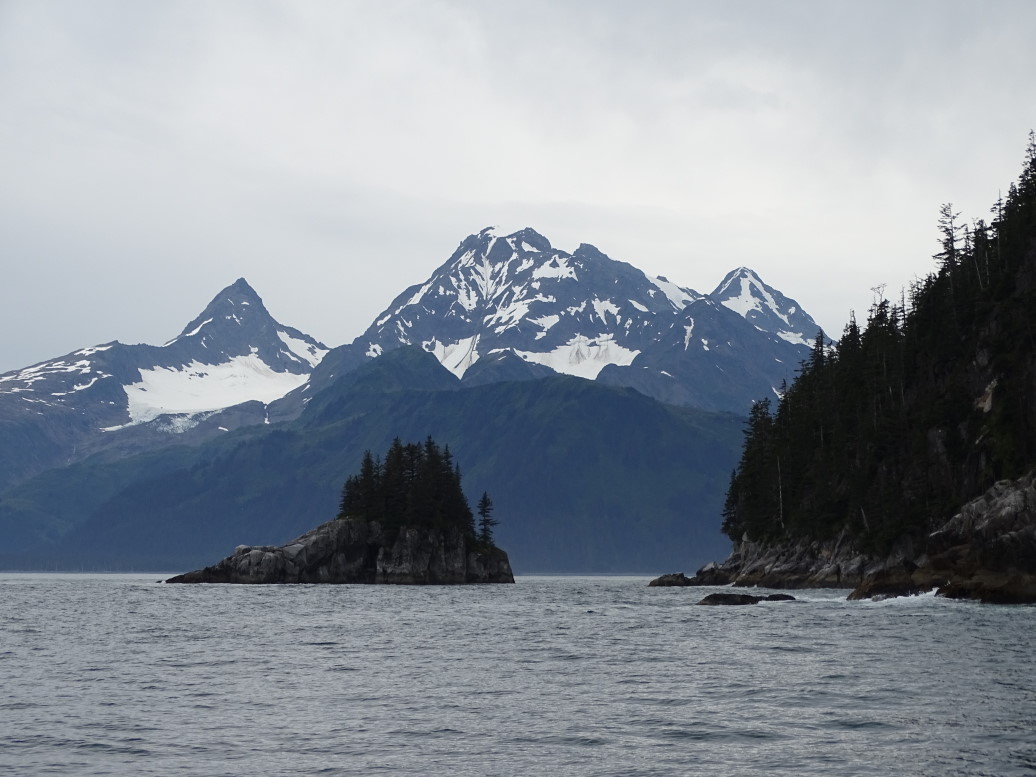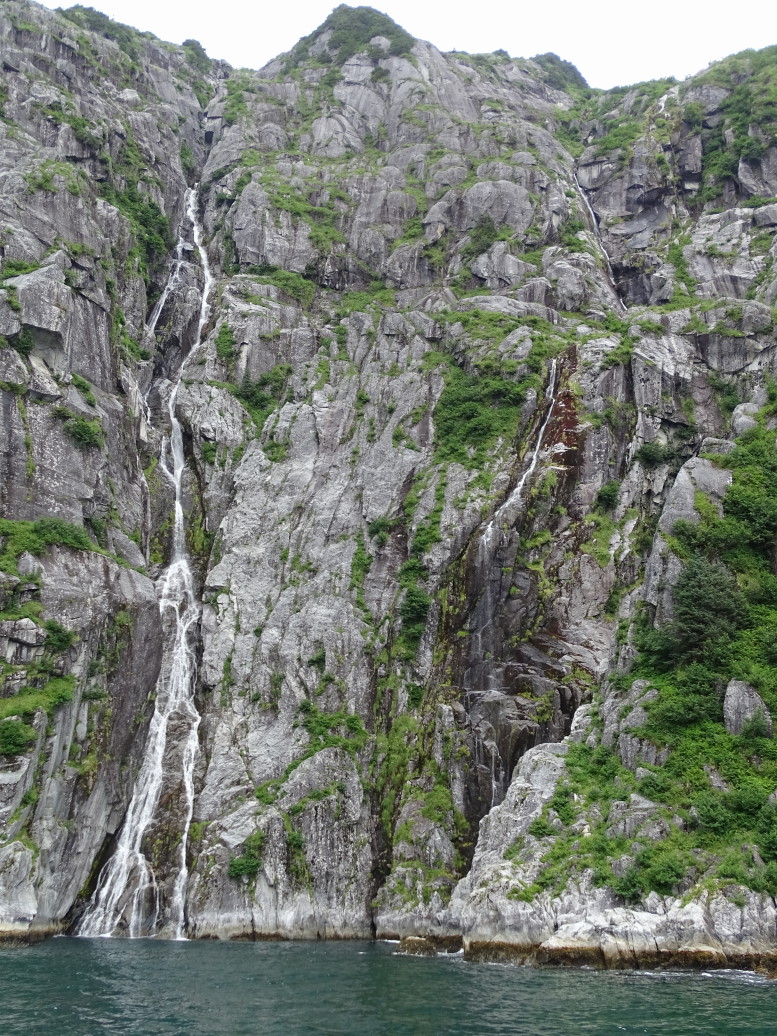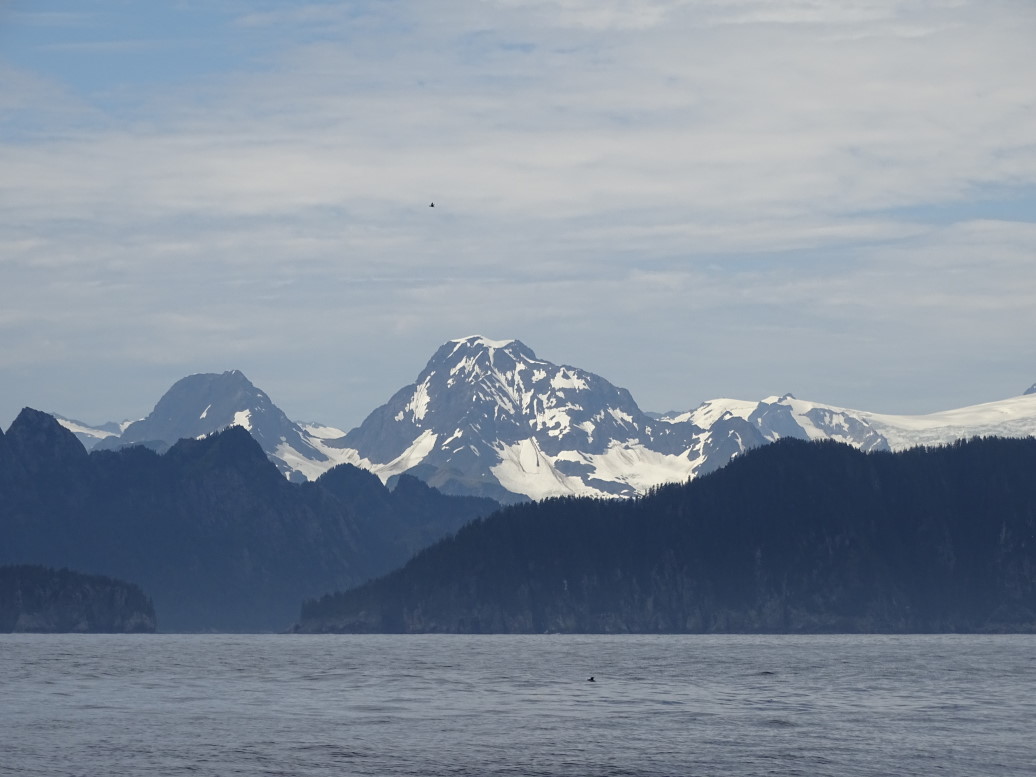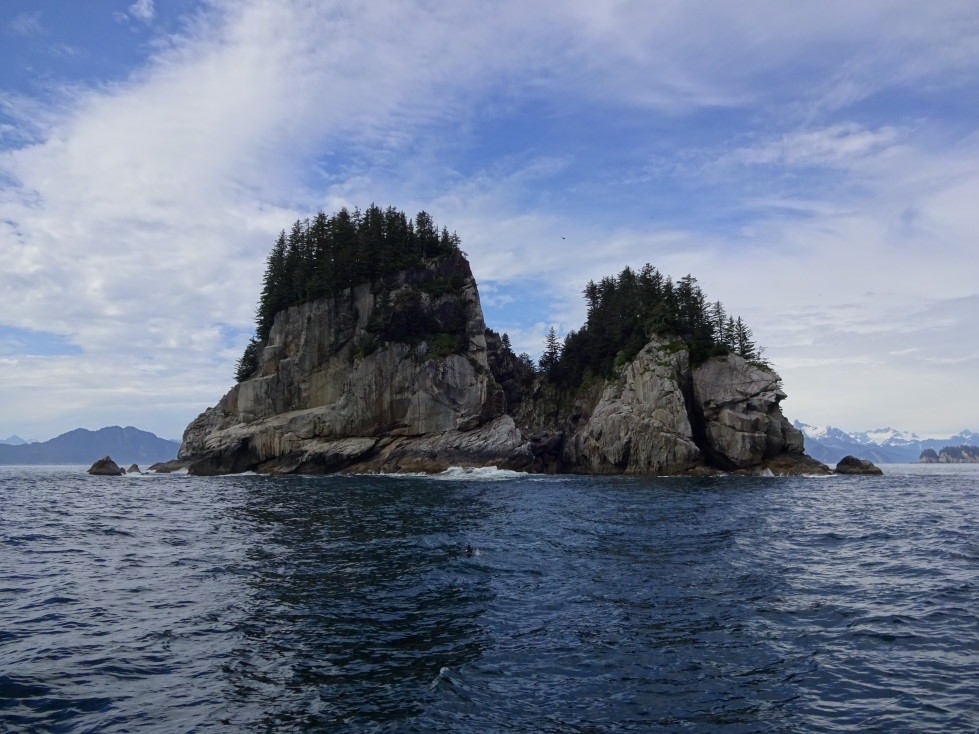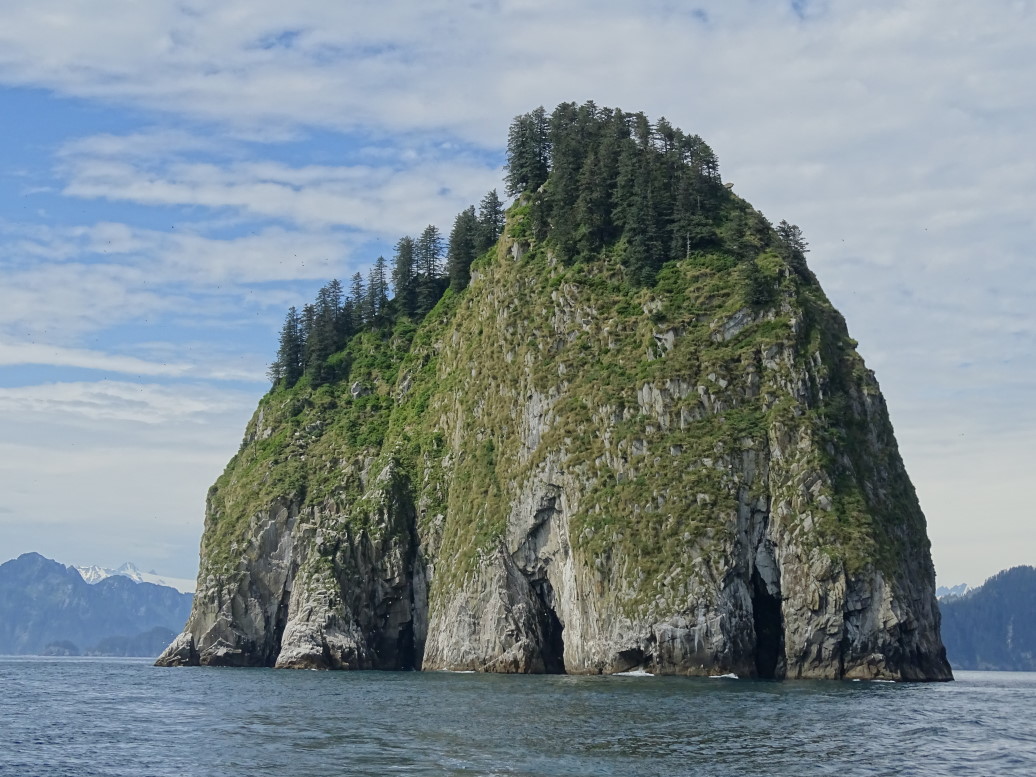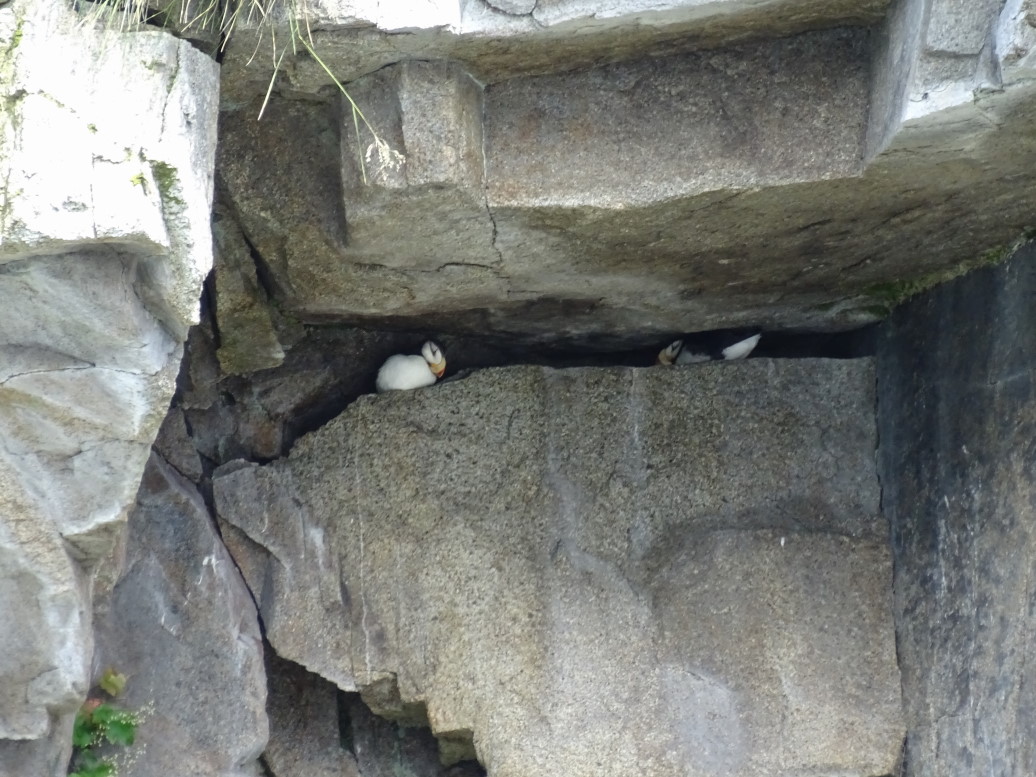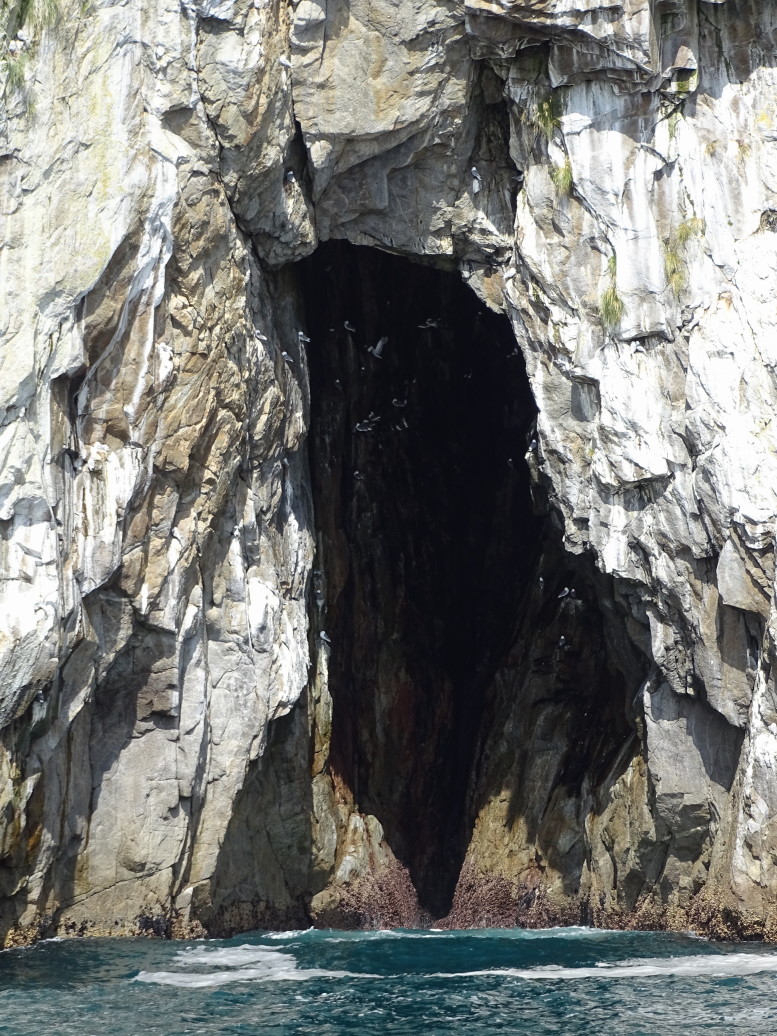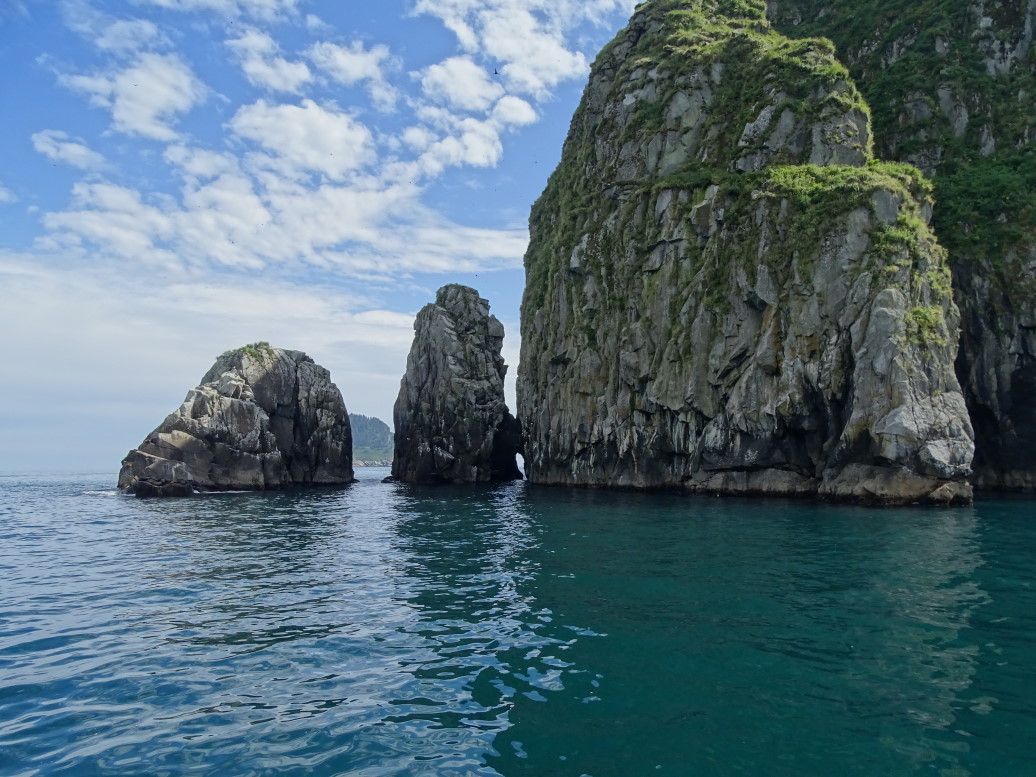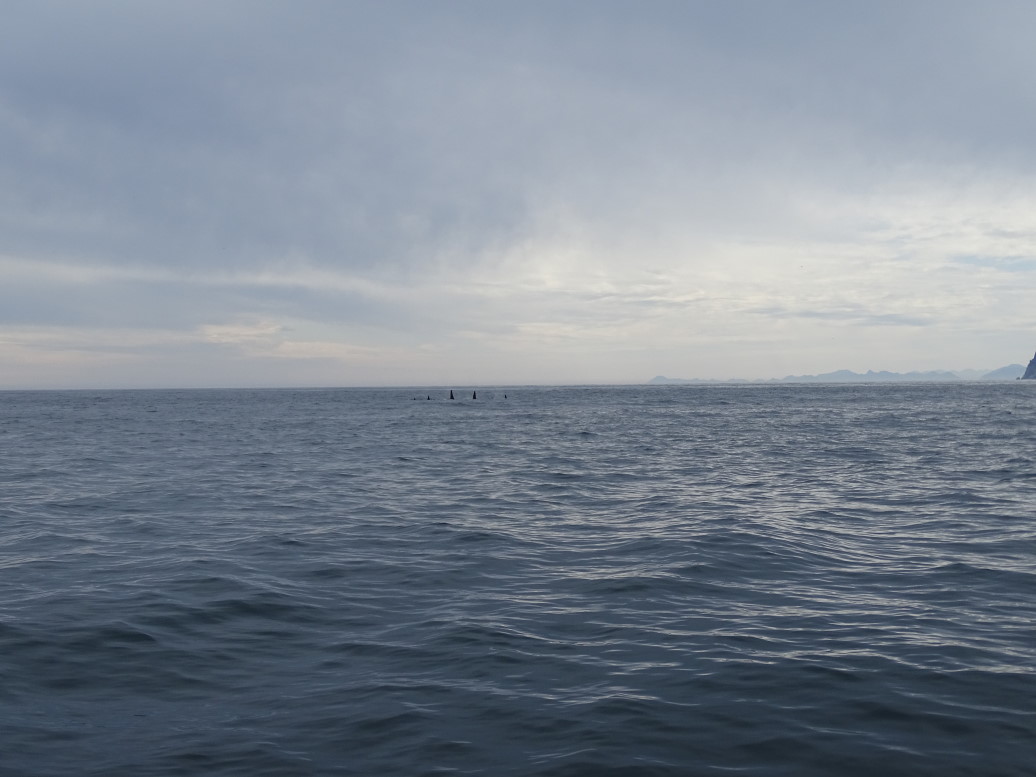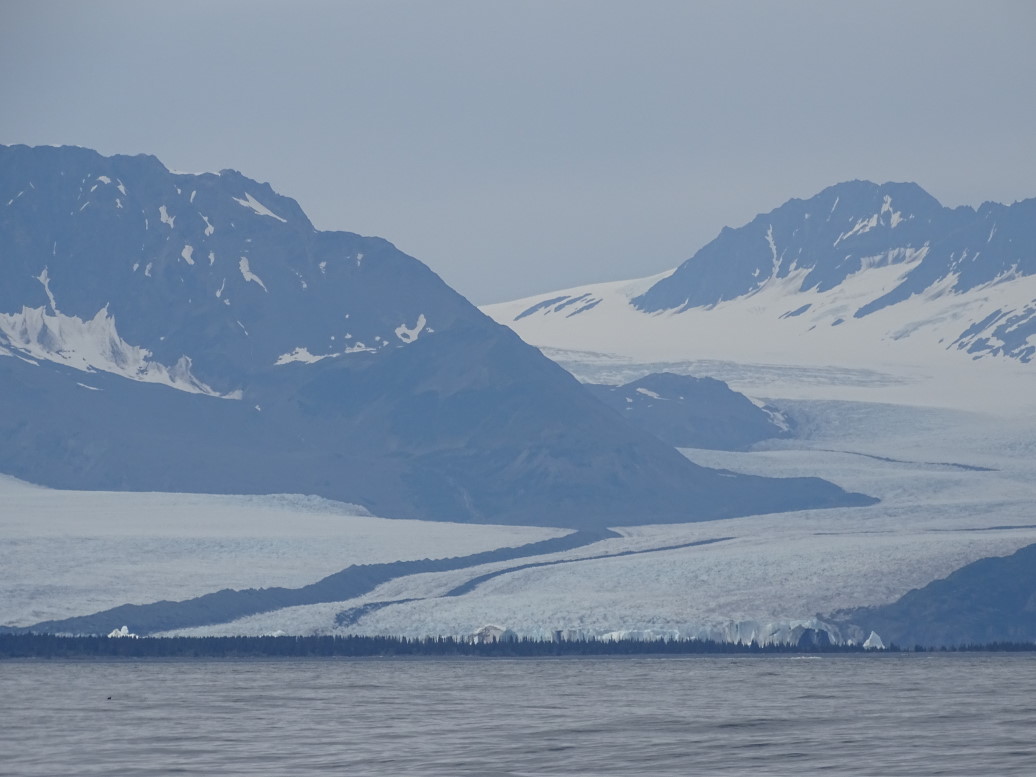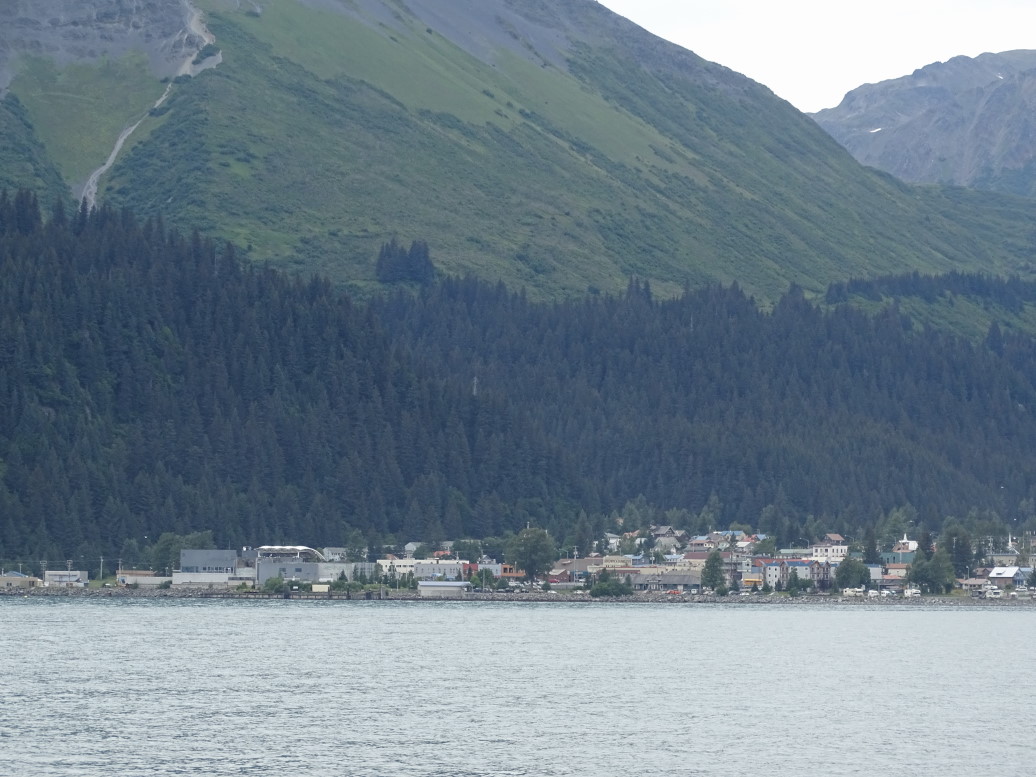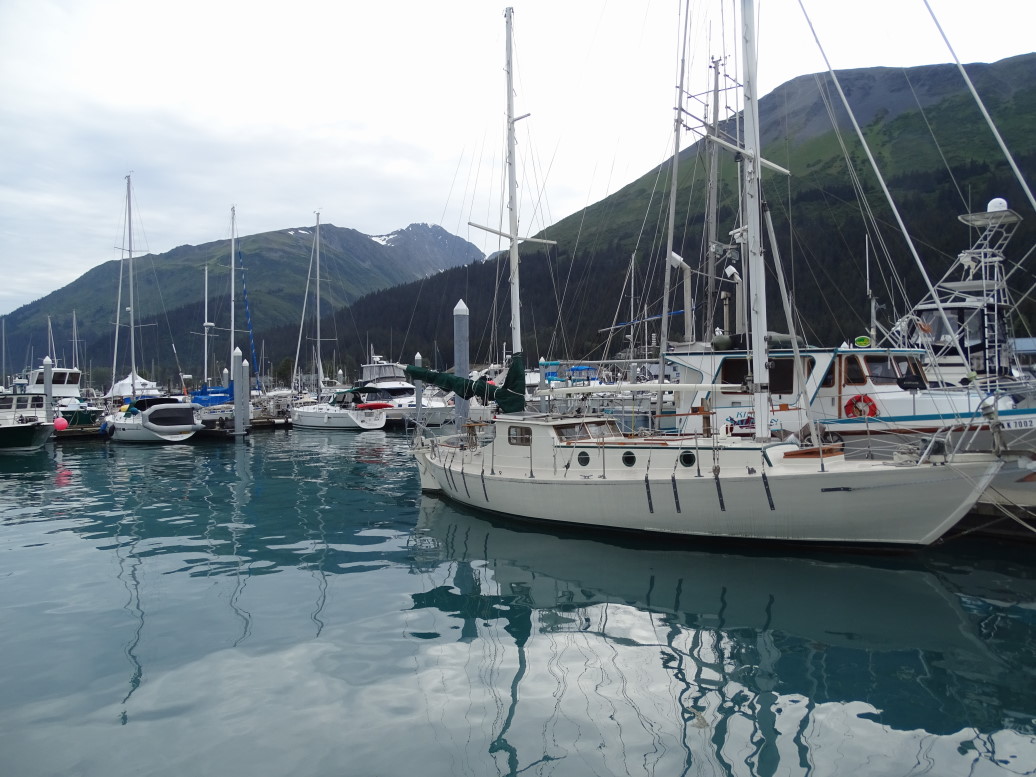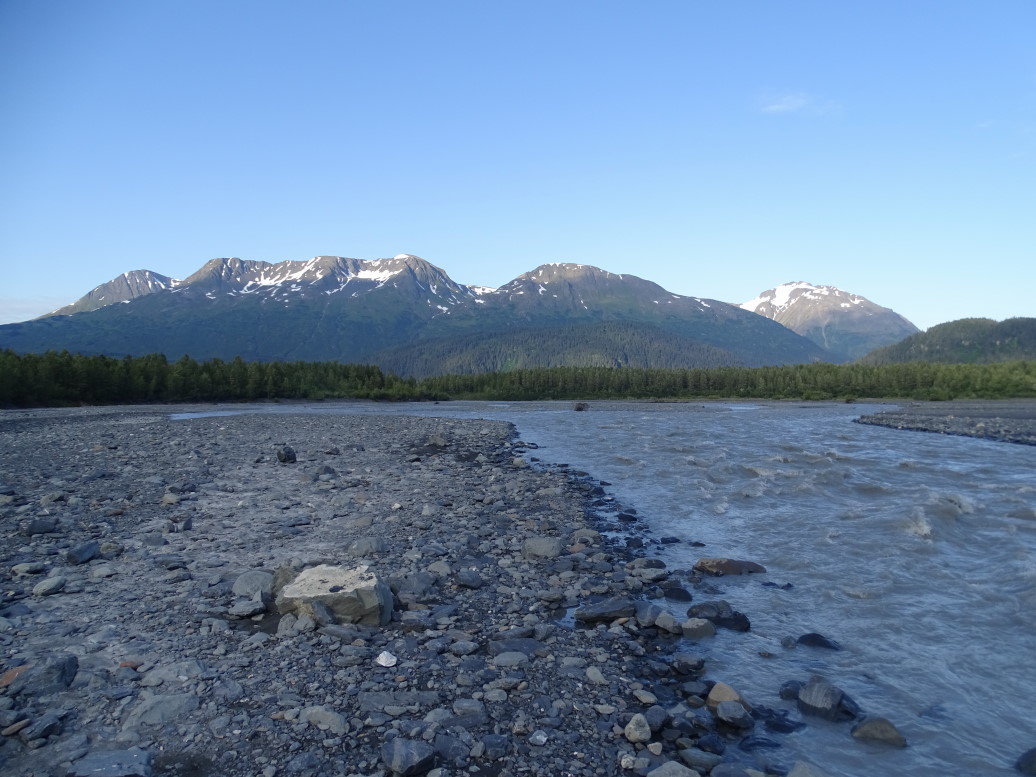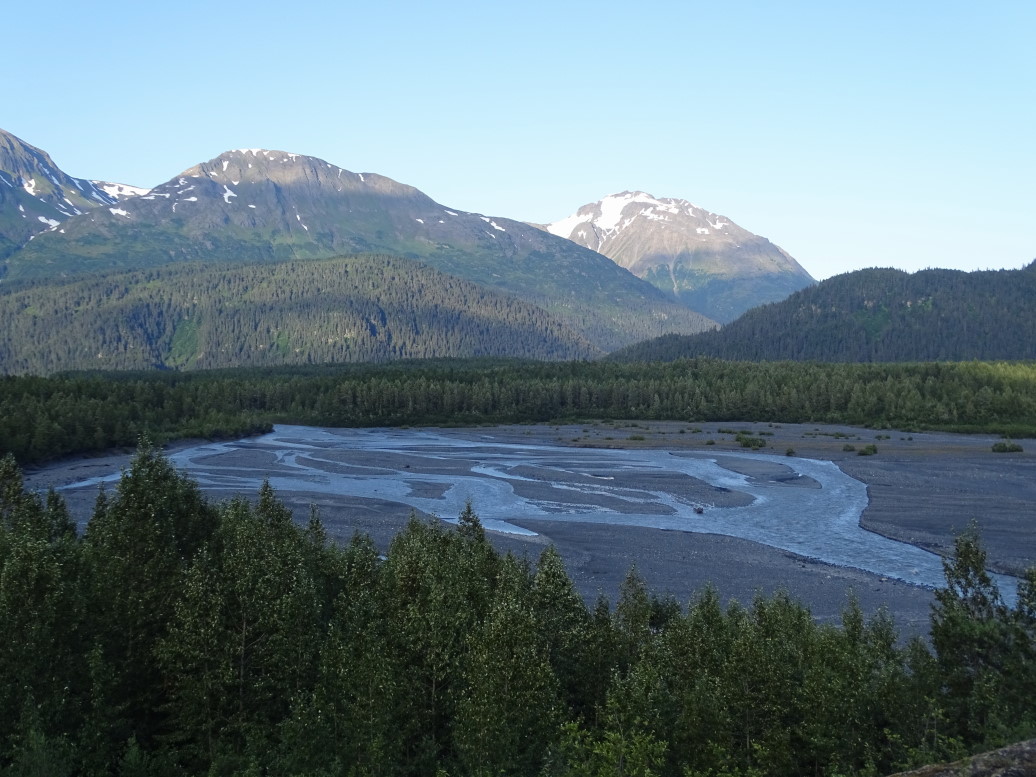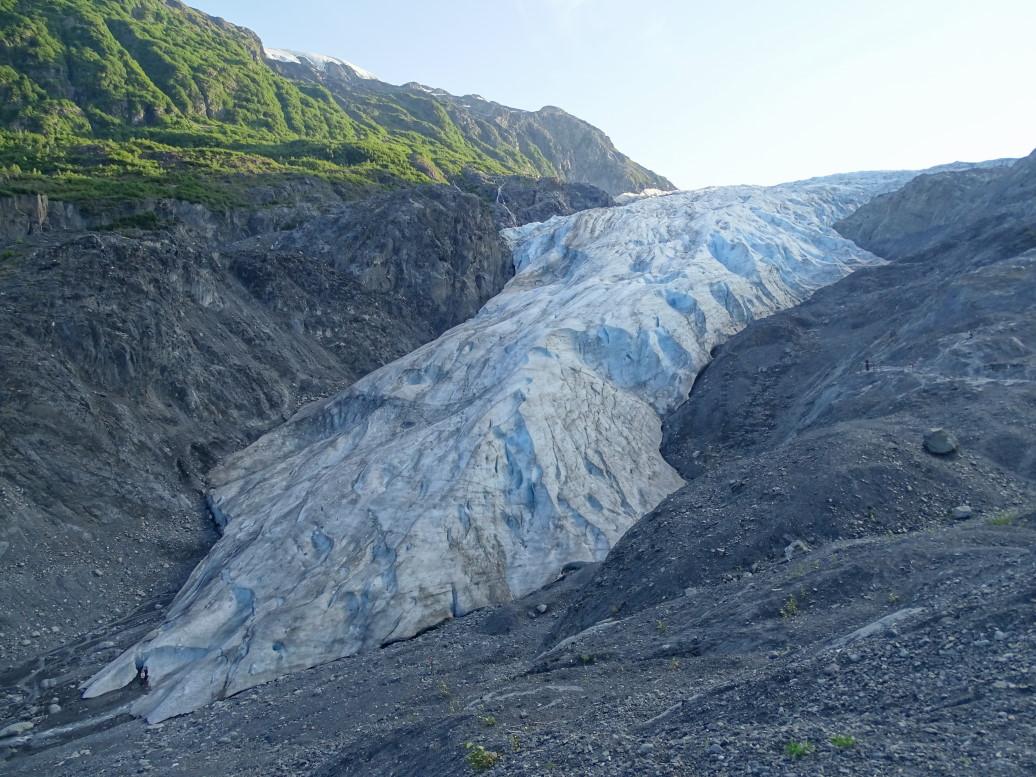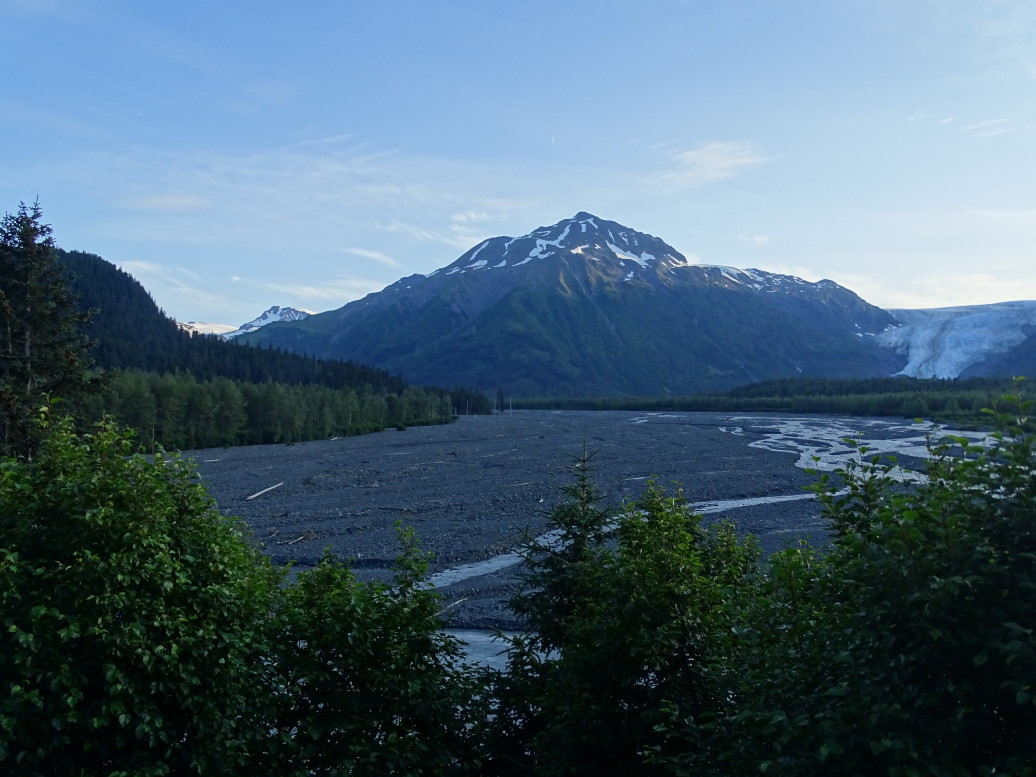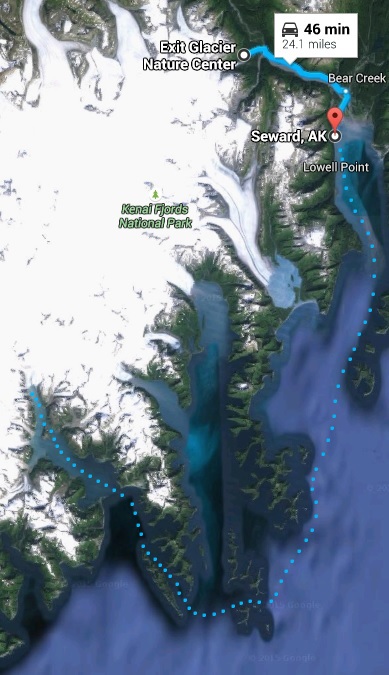We awoke shortly after 6a and ate breakfast at the in-hotel restaurant, Ms. Gene’s (named after the woman who purchased the hotel in 1964 just two weeks prior to the 9+ quake that leveled most of southern Alaska and dealt severe damage to the hotel — that’s just plain bad luck). It was decent, a good start to what would be a long day. We moved our carry-ons to the car and left our four suitcases with our room so that the hotel could switch them over to our new room for the evening. The small boat harbor wasn’t very far from the hotel, about a mile north. We left our car in the 72 hour parking and checked in with Major Marine, the tour operator for our day-long boat trip to Kenai Fjords National Park. There is an anchor commemorating those lost during the March 1964 quake as well as a nice harbor master’s office that has restrooms and showers for the fishermen.
Walked down to the slip where we found the “Viewfinder”. Not the biggest vessel, but one of the selling points of Major Marine is they run a small vessel so there isn’t a crush of people all trying to see one thing (we would later see a larger boat visibly leaning to one side as the mass of humanity piled onto one side to see something) and smaller vessels can get much closer to land and in shallower areas. The captain (I can’t remember his name, sadly) and deckhand (Clint) were very friendly and knowledgeable about the history (natural and otherwise) of the area and were fantastic at identifying the mammals and birds in the area.
The four of us put down our backpack, camera case, and binoculars at a table in the cabin and proceeded outside to look at Resurrection Bay slipping by the boat. The captain pointed out a U-shaped valley scoured by a glacier that would be a fjord were sea levels to slightly rise. Resurrection Bay itself is a massive fjord formed by a glacier that was originally 50+ miles long and up to 4000 feet deep. The bay itself is today 1000 feet deep, explaining how the large cruise ships (thankfully absent this day) can visit the town.
Our day opened up with a few sea otters floating in the waters as well as a bald eagle perched on a large blue machine that loaded coal from interior Alaska (Healy) onto ships. Then, just south of Seward we saw a large pod of orcas (killer whales) heading out to the open waters of the Gulf of Alaska. We followed them for a bit, amazing. The males have much larger dorsal fins that protrude far above the water. Clint said they only see orcas about half the time so this was a good start to the day.
Next up we saw a pod of Dall’s porpoise enjoying the wake of our boat darting in and out of the waves near the bow. They are so fast, the captain said at least 30kts/hr, and when they shoot out of the waves they made a little popping noise. Very hard to capture on film — I think Genetta got the best picture with the WX220 rather than the fancier HX400V I recently bought. I also took a video of them as well, much better representation.
Clint spotted a spout to left — turns out it was fin whale. The fin whale is the second largest mammal (after the blue whale) at up to 90 feet in length and also quite rare in those waters — Clint estimated they see one in only about 10% of the trips. Our amazing luck with animals (belugas, wolves, orcas, and now this) continued!
Sailing out of Resurrection Bay, which was dead calm with seas less than a foot, to the open waters of the Gulf of Alaska meant an uptick in the rocking of the boat — though seas were still only two to three feet — remarkably calm according to the captain. We swung by some islands in the Chiswell Islands group and saw Stellar sea lions sunning on rocks. The Chiswell Islands are beautiful, rising straight out of the sea with no beaches or anything — just slabs of rock with trees atop. Clint explained that the mounts were being swallowed up by the plates grinding together and subduction. We also saw a large group of nesting birds get riled up by a bald eagle perched atop a tree and looking their way hungrily.
We proceeded through the calm Granite Passage between the mainland and Granite Island and into Harris Bay and Northwestern Fjord. At the head of the fjord is Northwestern Glacier, a seven or eight hundred foot face of ice. In the water in front of the glacier were large chunks of ice, some with seabirds atop them, others with lots and lots of harbor seals. Harbor seals are only found here a couple of times a year — when they pup in the spring and in July when they molt. As it is Michelle’s favorite marine animal we were thrilled to see them. Every once in a while one would leave the ice floe and swim curiously up to the ship. Very cool. We also saw some very minor calving and heard the really neat cracking and popping associated with calving of a glacier. Clint said that Northwestern is the second most calving glacier in the area. We also checked out two other glaciers in the bay, Anchor and one other I forget the name of. We learned also that Northwestern Fjord was only accessible by boat since 1964 as the earthquake punched a hole in the terminal moraine at the mouth of the lagoon and allowed passage.

Didn't notice this until looking at the pictures and seal on the left is bloody, seal in the middle has blood near its snout

Hole punched in the terminal moraine of Northwestern Glacier by the 1964 earthquake is clearly visible on the map (1 fathom = 6 feet)
Next we visited a cove with multiple waterfalls. The captain got the boat to within ten feet of the cove’s sheer rock walls. Really awesome! Once back in open water we saw a couple of spouts from humpback whales feeding remarkably close to shore, within 50 feet. Also saw some puffins and other birds nesting, grandpa would’ve loved it so much. The puffins would paddle furiously out of the wake of the boat as we approached. The captain positioned the boat within a few feet of a sea cave as well and we watched the birds flitting about.
On the way back we saw two more pods of orcas — quite a day! On the way back to Seward we saw a rather large glacier with a dark stripe — turns out that is formed when two glaciers flow together and the material they plow on either side gets trapped between them. That glacier also had a lake behind its terminal moraine that held large icebergs.
Michelle later said that what we saw was up there with seeing the Pyramids. I’d have to agree with her, and one of the reasons that I went through almost three camera batteries, nearly eight hundred photos, ten videos, and waived my goal of no more than thirty photos in the blog per day — this one has fifty-seven.
On return to Seward we looked around for a place to eat and ended up at a local bakery / deli. The food was OK, not great. I had the french dip and fries. Addison ended up getting a sub from the adjacent Subway.
We hopped in the car and headed up to Kenai Fjords Visitor Center which is near Exit Glacier. Exit Glacier was so named because an expedition in the 50s or 60s entered via a glacier on the west side of the peninsula, crossed the massive Harding Ice Field over a period of ten days, and exited via the unnamed glacier that would thereafter be known as Exit Glacier. We four walked to the outwash plain first at the toe of the glacier but the mosquitoes were incredibly thick and chased Michelle and Genetta back to the car. Addison and I persisted, however, walking among the outwash plain then climbing the trail to the edge of the glacier. It was much windier there and the mosquitoes were no longer a nuisance. Was really neat to see the glacier up close as well as the Harding Ice Field spilling over the surrounding peaks. Finally on the way back to the car we swung by another, lower, view of the glacier.
Headed back into town and checked in again with the Hotel Seward, this time in the new wing. The room was a bit nicer, at the very least we welcomed having our own toilet and shower in the room. Ordered some vanilla custard dessert item, it was excellent — especially the fresh raspberries and blackberries. Blogged a bit and went to bed.
